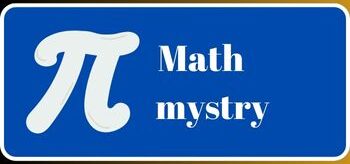Currently Empty: $0.00
- Description
- Curriculum
- FAQ
- Announcement
- Reviews
Functional analysis is an important branch of mathematics that explores vector spaces and the linear operators that act on them, especially in infinite-dimensional contexts. It merges concepts from linear algebra and topology to analyze the structures and properties of function spaces, which are crucial in various mathematical fields.
Key topics within functional analysis include normed spaces, Banach spaces, Hilbert spaces, and linear operators, along with concepts like spectral theory and functional equations. This discipline is essential for applications in areas such as quantum mechanics, differential equations, and optimization, offering a rigorous framework for understanding function behavior. Functional analysis is fundamental to both theoretical and applied mathematics, playing a significant role in the development of contemporary mathematical theories
What Will I Learn?
In a course or study of functional analysis, you can expect to learn the following fundamental concepts:
- Vector Spaces: Grasping the structure and properties of vector spaces, including subspaces, linear combinations, and spanning sets.
- Normed Spaces: Delving into normed spaces, their definitions, properties, and examples, along with concepts of convergence and continuity.
- Banach Spaces: Understanding complete normed spaces, known as Banach spaces, and their significance in the field of functional analysis.
- Hilbert Spaces: Learning about Hilbert spaces, which are complete inner product spaces, and their applications across various mathematical contexts.
- Linear Operators: Studying linear operators, their characteristics, and different types, including bounded and unbounded operators.
- Spectral Theory: Exploring spectral theory and its applications in analyzing linear operators, especially in the realm of quantum mechanics.
- Functional Equations: Investigating various functional equations and methods for solving them.
- Applications: Examining the practical applications of functional analysis in areas such as quantum mechanics, differential equations, optimization, and numerical analysis.
By the end of your studies, you will have a comprehensive understanding of the core concepts in functional analysis and their applications in mathematics and related fields.
Targeted Audience
The intended audience for a course or resource on functional analysis generally includes:
Students: Graduate and advanced undergraduate students in mathematics, especially those focusing on analysis, applied mathematics, or related fields.
Researchers: Academics and researchers in mathematics and adjacent disciplines who need a strong understanding of functional analysis for their work in areas like differential equations, quantum mechanics, and mathematical physics.
Professionals: Individuals in fields such as engineering, computer science, and data science who utilize concepts from functional analysis in their projects and problem-solving efforts.
Educators: Instructors and teachers aim to deepen their understanding of functional analysis to effectively convey these concepts to their students.
Lifelong Learners: Anyone interested in advanced mathematics looking to study functional analysis for personal enrichment or career growth.
-
1Lecture 1
This lesson wil cover :
Introduction
Definition
-
2Lecture 2
In This Lesson we Will Cover Examples Of Functional Analysis
-
3Lecture3
This Lesson will Cover:
Hamming distance
Definition:
Dense set
Separable set
Results:
-
4Lecture 4
This Lesson will cover:
open Set
Close Set
Neighbordhod
-
5Lecture 5
This Lesson Will cover :
Contiuous Maping Theorem
What is an LMS (Learning Management System)?
A Learning Management System (LMS) is a software application that facilitates the administration, documentation, tracking, and delivery of educational courses and training programs. It provides a centralized platform for educators or organizations to manage and deliver content, assess learner progress, and facilitate communication.
What are the key features of a Learning Management System?
Common features of an LMS include content management, user management, assessment tools, reporting and analytics, communication tools (such as forums or messaging), and integration capabilities with other software systems. These features collectively support efficient and organized online learning experiences.
How can an LMS benefit educational institutions or businesses?
LMS streamlines training and educational processes, allowing institutions and businesses to deliver consistent content, assess learner performance, and monitor progress. It facilitates remote learning, personalized learning paths, and often reduces administrative overhead, making it an essential tool for scalability and efficiency.
What is the role of an LMS in employee training and development?
In the corporate setting, an LMS plays a crucial role in employee training and development. It enables organizations to create, deliver, and track training programs, ensuring employees have access to relevant resources. LMS also supports compliance training, skill development, and ongoing learning initiatives.
1. Feature Alert!
Explore Our Latest Additions – Unleash Enhanced Functionality Today
2. Maintenance Notice
Scheduled Downtime on [Date]. Thanks for Your Patience.
3. Upcoming Event!
Join Us for [Event Name]. Save the Date and Get Ready for an Exciting Experience!
Stars 5
1
Stars 4
0
Stars 3
0
Stars 2
0
Stars 1
0



